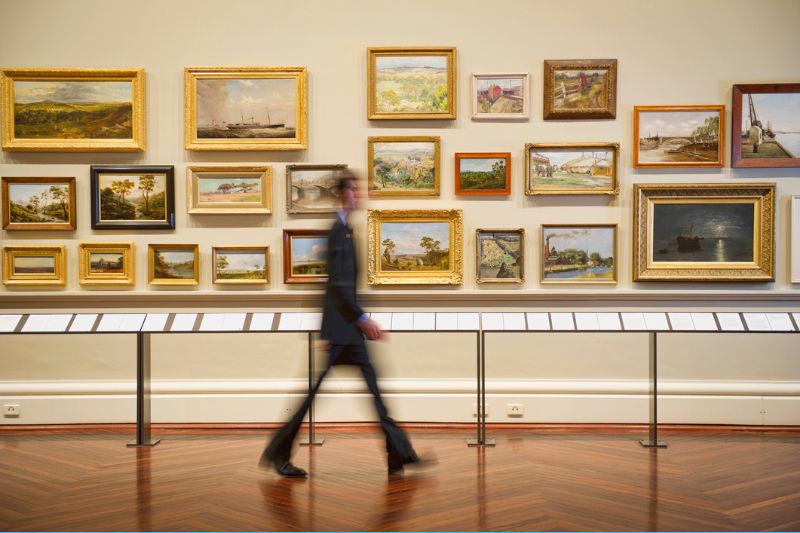It has long been clear that the anniversary of the landing of the First Fleet is not a suitable day for Australians to celebrate as our national day. It focuses attention on the date and not on the significance of the day. National days are helpful when they invite us to ask what we want our nation to be like and where our reality falls short. They can then allow us to celebrate the famous and unrecognised people who have helped shape the nation for good.

These large questions offer compass bearings for responding to the challenges posed by the large issues of the day that threaten to overwhelm or paralyse us. This year, these include the horror of war as we have seen it in Gaza and Ukraine, the threat of a wider conflict, and uncertain relationships with an unpredictable United States. Among them also are economic pressures experienced unequally by Australians, querulousness and polarised public conversation about a variety of social issues, and the urgent need to respond effectively to global warming and to the potential of new technologies to change human life as we have known it.
These challenges make it doubly important to have a large vision of what we want our nation and world to be. In general, this must be of a society in which each human being can flourish. That statement, of course, is abstract and needs to be filled out. But it is large in consequence. It implies that each human being is of equal value, equally precious, and may not be treated as a means to someone else’s end. To speak of human dignity implies that the worth of all human beings does not depend on their wealth, intelligence, achievement, race, religion or political allegiances.
Human dignity and flourishing are not empty concepts. They find expression in relationships, and so in human rights that define what we are entitled to expect from one another and are called to give to one another. They include the right to freedom, to life, to security, to shelter, to religious practice, to political and social association, to education and to work, for example. These personal and social rights reflect the human reality that we do not flourish by ourselves but through relationships with others. We depend on others to be born and reared, to communicate, to do business, to communicate, to form a family, and to trade. No person is self-made. Human flourishing depends on peaceable and cooperative relationships at every level of society. Any national celebration will highlight stories of those relationships.
Because human dignity is so bound to relationships between human beings, society has a responsibility to ensure that each human being can flourish. This is done in part by fostering agency in the groups that help shape people’s identity. Respect for persons will lead us to attend to the many historical and contemporary relationships that have shaped human lives and to the ways in which those relationships have been wounded. Respect for persons demands respect for complexity.
In hard and contentious times the commitment to the inalienable and equal dignity of each human being and respect for their associated rights will inevitably be put under pressure in public conversation and political decisions. The complexity of relationships risks being ignored in favour of a conflictual and exclusionary focus on human beings. Most recently that dynamic has been evident in the attempts to reduce the war in Gaza to a simple conflict between good and evil and to define the people of Israel and of Gaza the worthy and unworthy. The policies and strategies of the war are then evaluated accordingly. A proper respect for complexity would recognize the tragedy and complexity of war and would insist on respect for the humanity of people in judging the morality of the goals and the methods of war.
A similar lack of respect for human beings and for the complexity of relationships can be seen in the introduction of harsh laws directed at children who have committed serious offences. In many cases underlying the pressure for these laws has been prejudice based on race and colour. The call to submit children to the same penalties as adults has failed to respect the gradual growth of children into responsibility for their actions, the need of children for the support of family, and the destructive effects on children of confinement. To treat children as adults will have different results, often catastrophic for children. Respect needs to take account of difference.
'National days are helpful when they invite us to ask what we want our nation to be like and where our reality falls short.'
Similarly, respect for Indigenous Australians must take account of the complexity of their historical relationships to settlers. The simplistic claim that all Australians must be treated the same ignores the effects of Australian settlement, dispossession, exclusion and discrimination on Indigenous Australians and on their descendants.
If we are committed to making Australia a nation in which all people can flourish, we have many reasons to thank those who have gone before us. Respect for human dignity underlies and is embodied in the rule of law and in the institutions that support it. A national day that celebrates and reaffirms the commitment of all Australians to it is worth discovering.
Andrew Hamilton is consulting editor of Eureka Street, and writer at Jesuit Social Services.
Main image: (Getty images)